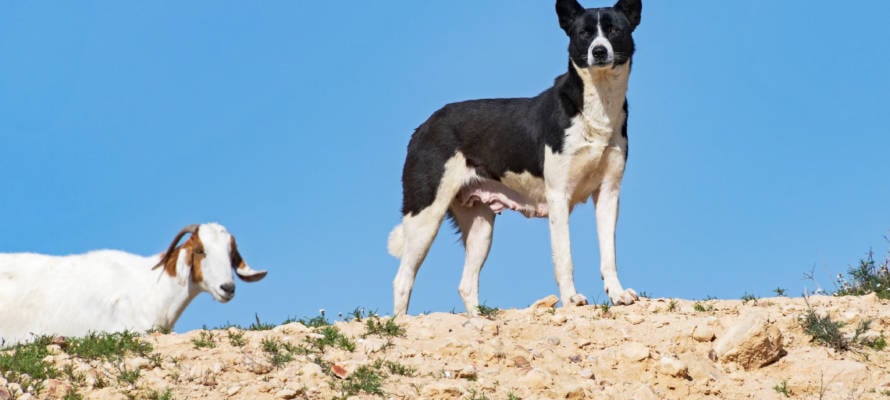The Torah is full of lessons for everyday living, which can be found not only in the statements and actions of great leaders like Moses, but even in the behavior of animals.
By: Rabbi Ari Enkin, Rabbinic Director, United with Israel
This week’s Torah portion is “Bo” (Exodus 10:1–13:16) and in it we read about the last three plagues that God sent upon Egypt. Next week: The Exodus.
Believe it or not, I want to take this opportunity to talk about dogs. That’s right, dogs. This is because dogs appear prominently in this week’s reading.
The Midrash tells us that it is the dogs that will lead the singing of praises to God in the World-to-Come. We are told that dogs will call everyone and everything in creation to prayer with the words of Psalm 96: “Come! Let us prostrate ourselves and bow, let us kneel before God, our Creator.”
It is quite odd that dogs, of all creatures, will be the ones to lead the praising of God. We find that dogs are referred to as “brazen” (Isaiah 56), compared to “vomit” (Proverbs 26), called “bloodsuckers” (1 Kings 21:19), and said to be a nuisance (Psalms 59:4), among many other unflattering descriptions and comparisons. So why is it that dogs will be the ones to lead the services?
The answer can be found in this week’s Torah portion. We are told that during the tenth and final plague, the plague of the death of the firstborn, where death and chaos was everywhere, the dogs didn’t bark. Didn’t make a sound. Not even a peep. As it says, “and no dog shall whet its tongue.”
Due to the fact that they kept quiet during the plague of the firstborn and let God do what He had to do unbothered, so to speak, the dogs were rewarded with the honor of leading the praises of God in the next world.
But there’s more. It is noted that the dogs didn’t open their mouths at all during the plague. They didn’t even “speak” among themselves, not even to praise God or “comment” in a supportive matter about what God was doing. They simply “shut up and minded their own business.”
It is very, very hard for a dog to keep quiet when such dramatics and action are taking place all around them! We know that when one approaches the door of a home that contains a dog, the animal gets excited and begins to bark even before the doorbell rings! As soon as dogs sense something, they make noise. You can’t keep them quiet.
But not then. Not during the plague of the firstborn.
Can you imagine how hard it must have been for the dogs to keep quiet on such a night? Yet they changed their behavior, they had self-control, they “worked on themselves.”
This is an important lesson for us. We all have some “dog-type” behavior we need to work on. We see that God takes note and rewards those who work on themselves. Even a temporary improvement is worth a lot. Never stop trying to become a better person. Take it from the dogs!
For more insights by Rabbi Enkin on this week’s Torah reading, click on the links below.
https://unitedwithisrael.org/living-torah-no-matter-what-the-situation-there-is-always-hope/
https://unitedwithisrael.org/living-torah-the-jews-who-left-egypt-had-no-time-to-bake-bread-so-what/
https://unitedwithisrael.org/lessons-of-the-lamb/
Do You Love Israel? Make a Donation to Show Your Support!
Donate to vital charities that protect Israelis and help inspire millions around the world to support Israel too!
Now more than ever, Israel needs your help to fight and win the war -- and also the battle of public opinion.
Anti-Israel bias and boycotts are out of control. Israel's enemies effectively use social media to incite brutal terror against innocent Israeli civilians. Please help us fight back!




